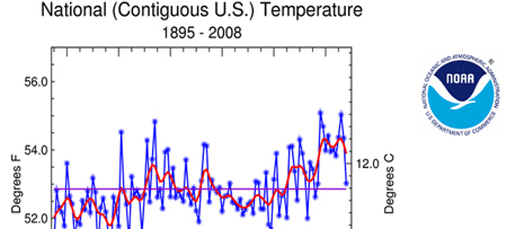Climatic Data
Climate Resources compiled on the this NESDIS website.
The National Climatic Data Center is the world's largest active archive of weather and climate data. These are the cornerstone for the prediction of future events, which affect the world's environment and economy. NCDC responds to data requests from all over the world.
NCDC is the authoritative source for climate monitoring. State of the Climate reports are published monthly and annually for the United States and the globe.
NCDC operates the World Data Center for Meteorology which is co-located at NCDC in Asheville, North Carolina, and the World Data Center for Paleoclimatology which is located in Boulder, Colorado.
NCDC supports a three tier national climate services support program - the partners include: NCDC, Regional Climate Centers, and State Climatologists.
Geophysical Data
National Geophysical Data Center (NGDC) provides scientific stewardship, products, and services for geophysical data from the sun to the Earth and the Earth's sea floor and solid Earth environment, including Earth observations from space.
The Solar-Terrestrial Physics program provides data from the Earth's upper atmosphere and space environment to the surface of the Sun, and Earth observations from space. Space weather data can be accessed from the Space Physics Interactive Data Resource (SPIDR).
The Marine Geology and Geophysics Division provide global geophysical and digital elevation data, marine geological and geophysical data, and natural hazards data. Looking for data or maps of bathymetry, topography, or digital elevation models?
NGDC is also home to the National Snow and Ice Data Center through a cooperative agreement and maintains the World Data Center System.
Oceanographic Data
National Oceanographic Data Center (NODC) archives and distributes oceanographic data and information. These data include physical, biological, and chemical measurements from in situ oceanographic observations, satellite remote sensing, and industrial oceanographic activities in coastal and deep ocean areas.
Through NODC archive and access services, these ocean data are used to answer questions about climate change, ocean phenomena, and management of coastal and marine resources, marine transportation, recreation, national security, and natural disasters. Another significant user community is Education, where these data and information products help teach each new generation of students about the oceans. Requests for oceanographic data and information have increased each year since the Center was established in 1961.
NODC is also home of the National Coastal Data Development Center and the
NOAA Central Library.



